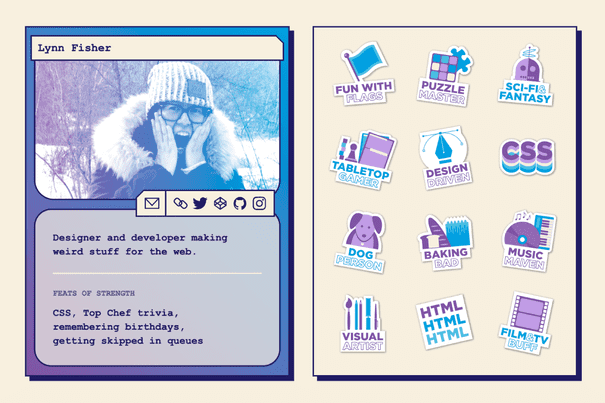We talk a lot about people at &yet: putting people first in business; replacing words like “users” or “customers” with “people” whenever possible; the fact that (as one of our best-loved t-shirts reminds us) software is about people. I recently upgraded my desktop wallpaper to this beautiful “Pixels are about people” graphic, as a kind of talisman I can refer to throughout my day.
It’s a conscious choice we make, putting people front and center in our language — because it’s far too easy to lose sight of the wildly complex, multifaceted, fascinating people we’re making things for. And we believe with our whole hearts that business and whole-humanness are not just compatible, but that it’s possible to build thriving businesses precisely by putting people first, and making space for humanity and humane-ness.
(This is also why we’ve been so focused on weirdos lately — because when you take the time to connect with your weirdos, you put that human connection first, and build trust from a place of genuine shared interest.)
Recently we had the opportunity to work with the folks at Heroku and Salesforce on a project that we’ve fallen in love with. Wicked Coolkit is a collection of retro style, open-source web tools that are built on Heroku & Salesforce, and that allow web developers to showcase their multi-facetedness.
We know a lot of coders, and none of them are just coders: they’re coders who also knit, cycle, parent, cook, make art, dance, read, write, engage in civic life, do puzzles, garden, and so on. A lot of us have stories about how our hobbies made us better coders, or opened up new avenues in our work; and many of us apply our coding skills to personal projects that focus on our interests outside of work. We aren’t just coders; we’re people who code.
Now, Heroku is a platform a lot of devs use for personal projects; it’s nimble and flexible, and lets you spin something up quickly and efficiently, and iterate on it over time. But the folks at Heroku are aware that their parent company, Salesforce, doesn’t have the same associations in most devs’ minds; most of us perceive Salesforce as a big, enterprise CRM, focused on business needs — the opposite of lightweight, and not something you’d consider using on a personal project.
It turns out, though, that you can use Salesforce to build something lightweight, personal, and fun — but rather than trying to convince anyone of that, we partnered up with their team to build an example of exactly that, in a way that allows coders to play around and tinker with it.
We wanted whatever we created to really reflect that “personal project” vibe, while also making use of some of the data management stuff Salesforce excels at. And while we were throwing around ideas, we kept coming back to the nostalgia we’ve been hearing from friends and colleagues about the 1990s-era web — back when the web was smaller, weirder, and way harder to find your way around. (Anyone remember how many URLs had tildes (~) in them? And how hit-and-miss search engines were before Google?)
What if, we wondered, we created a way for web devs to set up a kind of profile that wasn’t another social network? Just a little personal profile, with a mix of professional and personal interests, that looked cool and could be shared and linked with friends? We started playing around with the idea of a trading card — like you might collect for your favorite sport, or Magic: The Gathering. And as we iterated on that idea, we came up with a couple of complementary tools to round out the set.
Wicked Coolkit launches this week, and we’re kicking it off with:
- Developer trading card: share your feats of strength — both coding-related and otherwise.
- Webring: build connections between you and your friends, or folks who share your niche interests.
- Hit counter: because it wouldn’t be the retro web without a hit counter that shows how many people came to your site (or how many times they hit refresh).
One of the things that turned out to be really fun (and maybe in retrospect, unsurprising) about this project was that because all of us had permission to infuse our own personal interests into it, everyone involved brought a ton of creative energy, warmth, and devotion to the process. You’ll see little touches everywhere that reflect the level of care that everyone feels, from the 1990s aesthetic to the niche hobbies you can “stick” to your trading card.
As Julián Duque, one of Heroku’s developer advocates, put it on a recent episode of the Code[ish] podcast:
One thing I love about the project and how we are using it — Heroku and Salesforce, and it happened to me before joining Salesforce — is you see it as this super enterprise software for super serious, square applications, and always the use cases you'll find are enterprise-y, business-y. And for people maybe like me or the weirdos out there, sometimes those use cases might not be as interested and are doing some other fun projects on the web. But being able to use the power of Salesforce or leveraging Salesforce, how can we use their database capabilities to manage all the data, to be able to feed these type of applications, right? Something as cool as Wicked Coolkit, it shows the power of both platforms, both the Salesforce and Heroku platform, and how can they work together and create really cool use cases.
We’re really proud of this one, and we hope you’ll share it with your favorite people who code.



